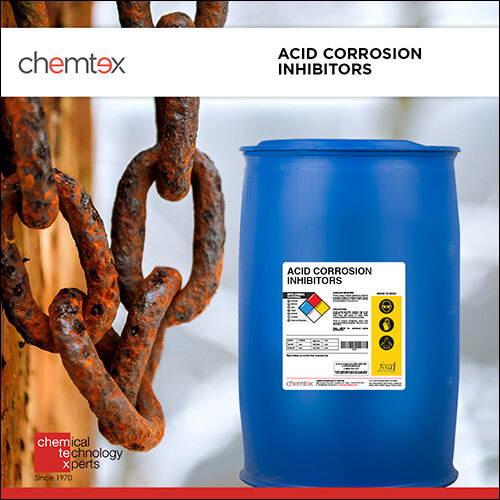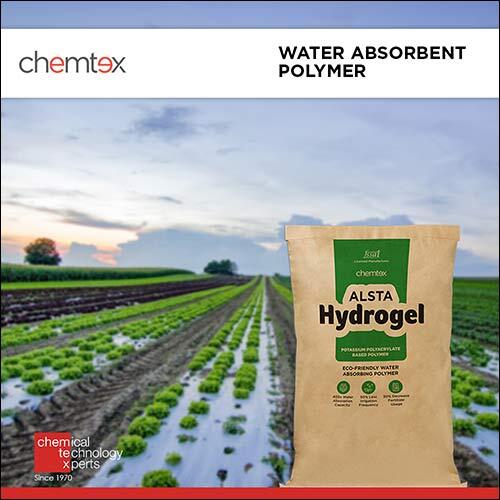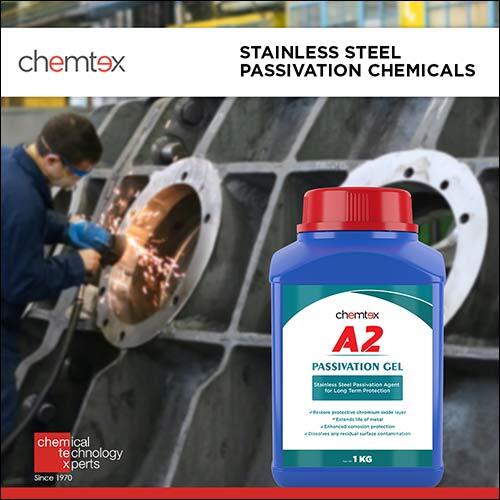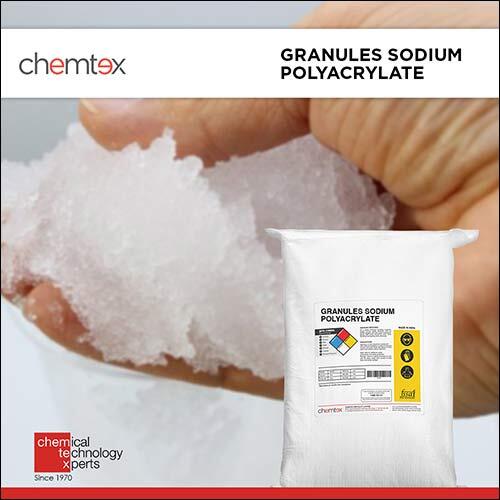Acid Corrosion Inhibitor
Price 180 INR/ Kilograms
MOQ : 1 Kilograms
Acid Corrosion Inhibitor Specification
- Product Type
- Acid Corrosion Inhibitor
- Appearance
- Liquid
- Usage
- Industrial
Acid Corrosion Inhibitor Trade Information
- Minimum Order Quantity
- 1 Kilograms
- Main Export Market(s)
- Middle East, Africa
- Main Domestic Market
- All India
About Acid Corrosion Inhibitor
An acid corrosion inhibitor is a chemical compound that is added to acid solutions to mitigate the corrosive effects on metal surfaces. It forms a protective film or barrier on the metal, reducing the rate of corrosion and extending the lifespan of equipment and infrastructure. Acid corrosion inhibitors are commonly used in industrial processes, such as metal cleaning, pickling, and acid treatments, where acids are utilized.
FAQ :
Q: What is an acid corrosion inhibitor?
A: An acid corrosion inhibitor is a chemical additive used to minimize the corrosive effects of acids on metal surfaces. It forms a protective layer on the metal, preventing or slowing down the corrosion process and preserving the integrity of equipment and structures.
Q: Why is an acid corrosion inhibitor necessary?
A: Acids are highly corrosive substances that can rapidly degrade metal surfaces, leading to equipment damage, leaks, and failures. An acid corrosion inhibitor is necessary to mitigate the corrosive effects and prevent costly repairs, downtime, and potential safety hazards.
Q: How does an acid corrosion inhibitor work?
A: Acid corrosion inhibitors work through different mechanisms, depending on the specific formulation. They can form a passivation layer on the metal surface, creating a barrier that shields the metal from the corrosive acid. Some inhibitors chemically react with the acid to neutralize its corrosive properties.
Q: What types of acids can be inhibited by acid corrosion inhibitors?
A: Acid corrosion inhibitors can be formulated for various types of acids, including mineral acids such as hydrochloric acid (HCl), sulfuric acid (H2SO4), nitric acid (HNO3), and organic acids. The selection of the appropriate corrosion inhibitor depends on the specific acid being used and the metal being protected.

Tell us about your requirement

Price:
Quantity
Select Unit
- 50
- 100
- 200
- 250
- 500
- 1000+
Additional detail
Mobile number
Email
More Products in Performance Chemicals Category
Water Absorbent Polymer
Price 260 INR / Kilograms
Minimum Order Quantity : 1 Kilograms
Usage : Industrial
Product Type : Water Absorbent Polymer
Appearance : powder
Silicone Oil 30000 CST
Price 550 INR / Kilograms
Minimum Order Quantity : 1 Kilograms
Usage : Industrial
Product Type : Silicone Oil 30000 Cst
Appearance : Liquid
Stainless Steel Passivation Chemicals C
Price 165 INR / Kilograms
Minimum Order Quantity : 1 Kilograms
Usage : Industrial
Product Type : Stainless Steel Passivation Chemicals
Appearance : Liquid
Sodium Polyacrylate
Price 170 INR / Kilograms
Minimum Order Quantity : 1 Kilograms
Usage : Industrial
Product Type : Sodium Polyacrylate

 Send Inquiry
Send Inquiry Send Inquiry
Send Inquiry



